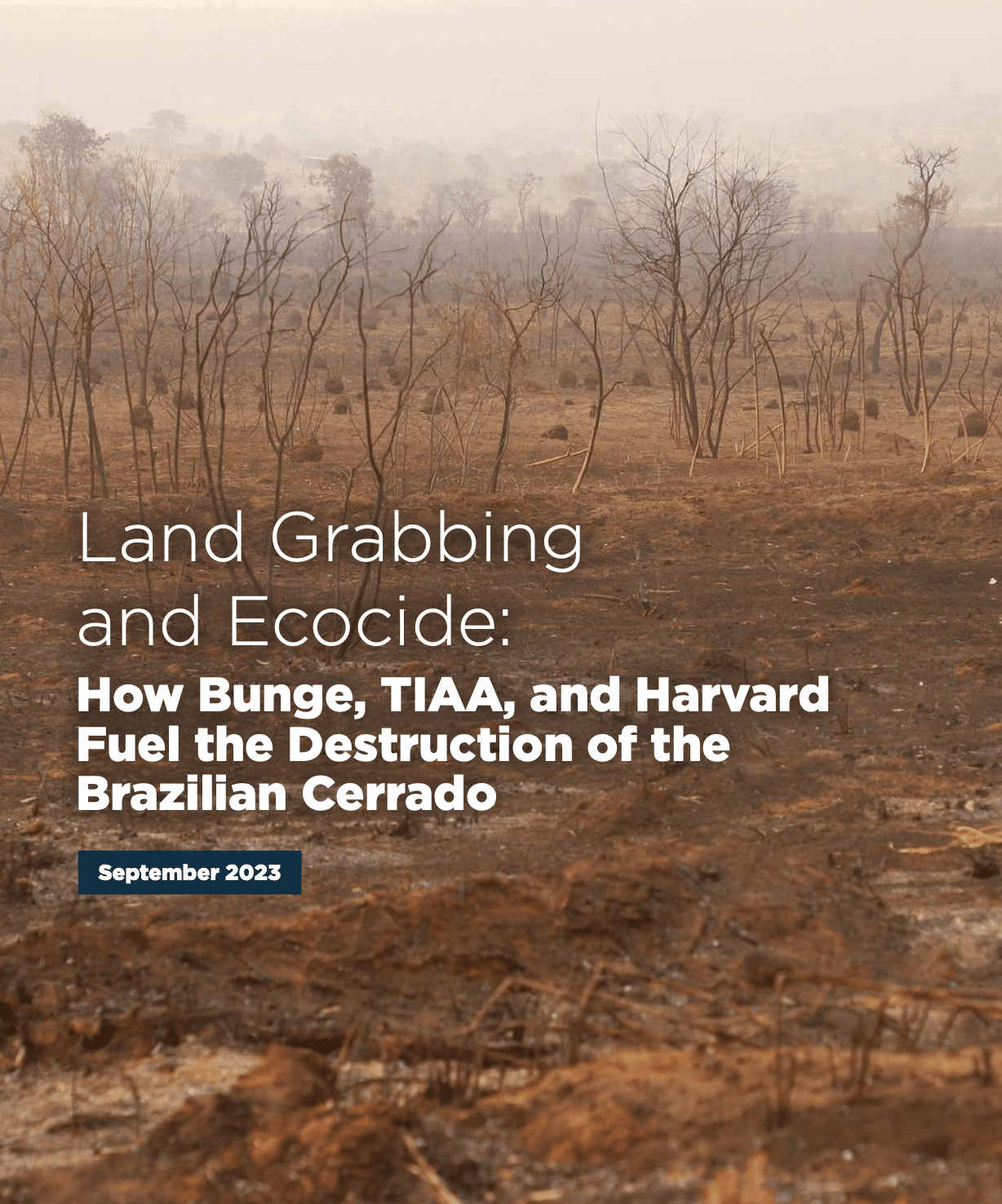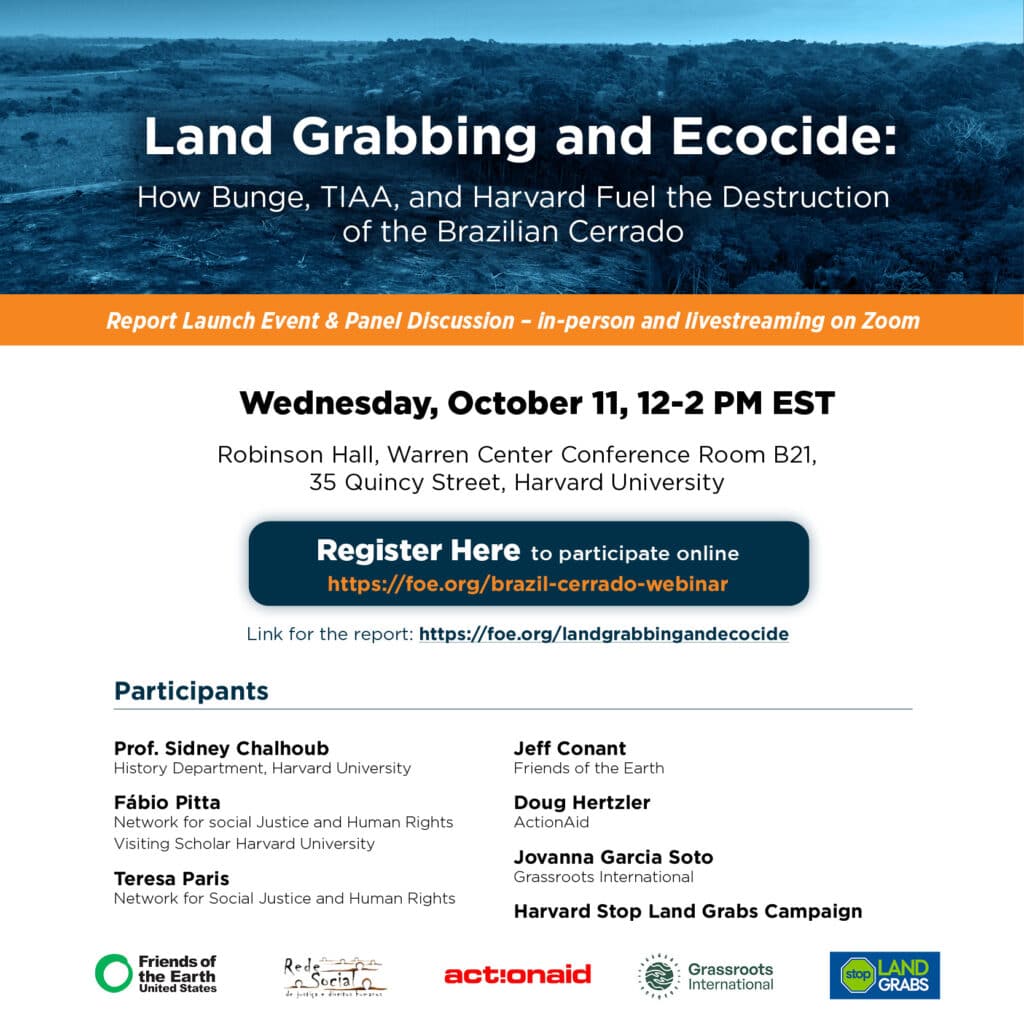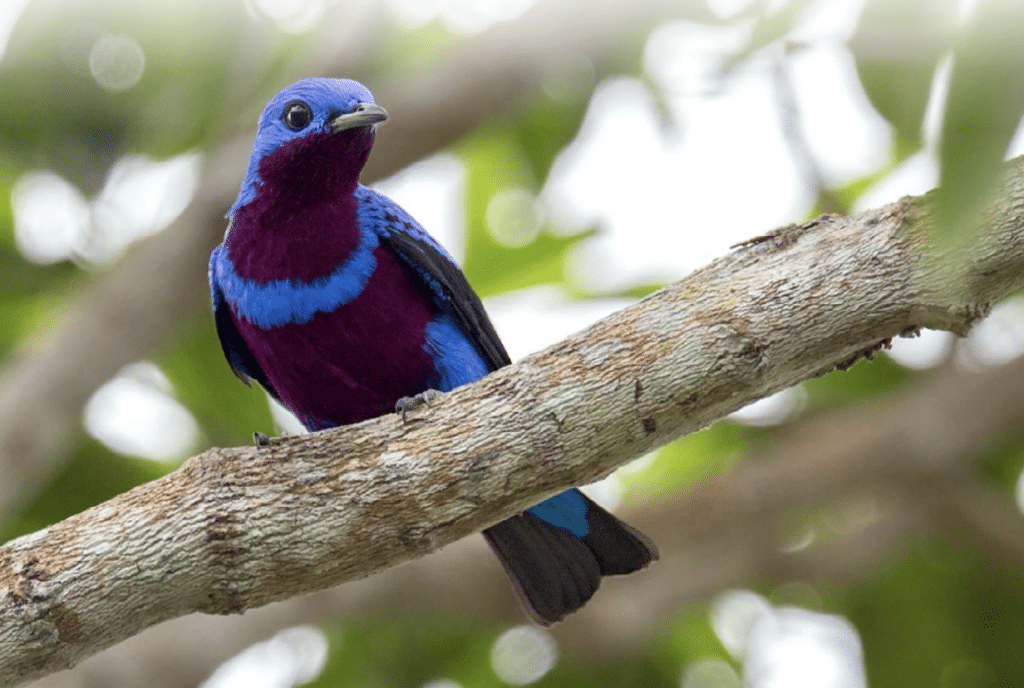Land Grabbing and Ecocide: How Bunge, TIAA, and Harvard Fuel the Destruction of the Brazilian Cerrado

Join us on October 11 for a panel discussion featuring report authors, grassroots researchers, academics, and activists to learn more. Register here to join via Zoom.
The soy industry is responsible for widespread deforestation and human rights abuses in the Brazilian Cerrado – the world’s most biodiverse savanna. Often, local land grabbers, gunmen, and militias violently steal land from local communities and subsequently deforest the land in preparation for soy plantations, which enters the supply chains of large US and Brazilian soy companies. A new report by Friends of the Earth US, The Brazilian Network for Social Justice and Human Rights, and ActionAidUSA details how Harvard University, retirement fund manager TIAA, and U.S. agribusiness trader Bunge Limited are fueling land grabbing and ecocide in the Brazilian Cerrado. Despite these companies’ rhetorical sustainability commitments and attempts to portray themselves as climate conscious, their business operations and investments are contributing to widespread deforestation, violent land grabbing, environmental pollution, violations of communities’ rights, and destruction of the Cerrado’s unique and irreplaceable ecosystems.
Read the report here
Read the executive summary here
Read the press release here

The Brazilian Cerrado is a globally significant biome and the world’s most biodiverse savannah. It is home to Indigenous, Quilombola (Afro-descendant), and other traditional peasant communities that have lived on the land for generations, as well as home to 5% of the world’s plant and animal species. Within the Cerrado, the MATOPIBA region (acronym for the states of Maranhão, Tocantins, Piauí, and Bahia) is the current frontier for Brazil’s soy expansion, where, through the use of land grabbing, fire, and deforestation, large swaths of native vegetation are destroyed and subsequently blanketed by industrial monoculture soy plantations.

Bunge Limited
Bunge Limited is a US-agribusiness company headquartered outside of St. Louis, Missouri. Bunge’s business model and operations incentivize local land grabbers and companies to forcibly – and often violently – take land from local communities in order to deforest them in preparation to establish soy plantations. Bunge holds a near-monopoly over the sale of inputs and financing to soy producers in the Brazilian state of Piauí and controls almost all soy trading in the region. More than 10,000 square kilometers of native vegetation were destroyed in the Cerrado last year – a rise of more than 25% from the previous year. However, in Bunge’s backyard in the Santa Filomena region of Piauí, deforestation and destruction of native vegetation rose by a staggering 293%.
TIAA
TIAA is a pension fund for university faculty and academics – is the largest owner of farmland around the world. In Brazil, there are several companies that TIAA partially owns or helped created that lease land, which boosts demands and drives prices up on the land market. This increase in land prices incentivizes land grabbing by promoting the expansion of soy monoculture plantations. TIAA’s role in land acquisition and land speculation merits special attention because of its exposure to land grabbing, corruption, and deforestation. An investigation carried out earlier this year found that TIAA and its partner COSAN purchased 30,000 hectares of land from known or accused land grabbers.
TIAA’s track record is one of buying large amounts of land and in many cases leasing it back to the seller in order to generate capital for further expansion. Notably, Brazilian soy company SLC Agricola is TIAA’s largest tenant and one of the worst deforesters in the region. This company has expanded its operations by leasing properties from TIAA, generating profits for both entities.
Harvard
Harvard is one of the largest foreign landowners in Brazil. Harvard’s land speculation has led to gross violations of communities’ rights and ongoing, escalating environmental destruction. Harvard’s endowment fund buys and sells land in Brazil through three local companies. One of those, Insolo Agroindustrial acquired land illegally taken from communities for the purpose of soy production. According to monitoring data highlighted in the new report, Insolo is believed to have been responsible for deforesting over 53,000 hectares in the last decade. This type of land acquisition and expansion continues to date, as Insolo Agroindustrial continues to aggressively expand.
Notably, an October 2020 court ruling found that HMC (and TIAA) illegally acquired more than 500,000 acres of public land in the Cerrado.
Ways to Support Our Work

Read Latest News
Stay informed and inspired. Read our latest press releases to see how we’re making a difference for the planet.

See Our Impact
See the real wins your support made possible. Read about the campaign wins we’ve fought for and won together.

Donate Today
Help power change. It takes support from environmental champions like you to build a more healthy and just world.